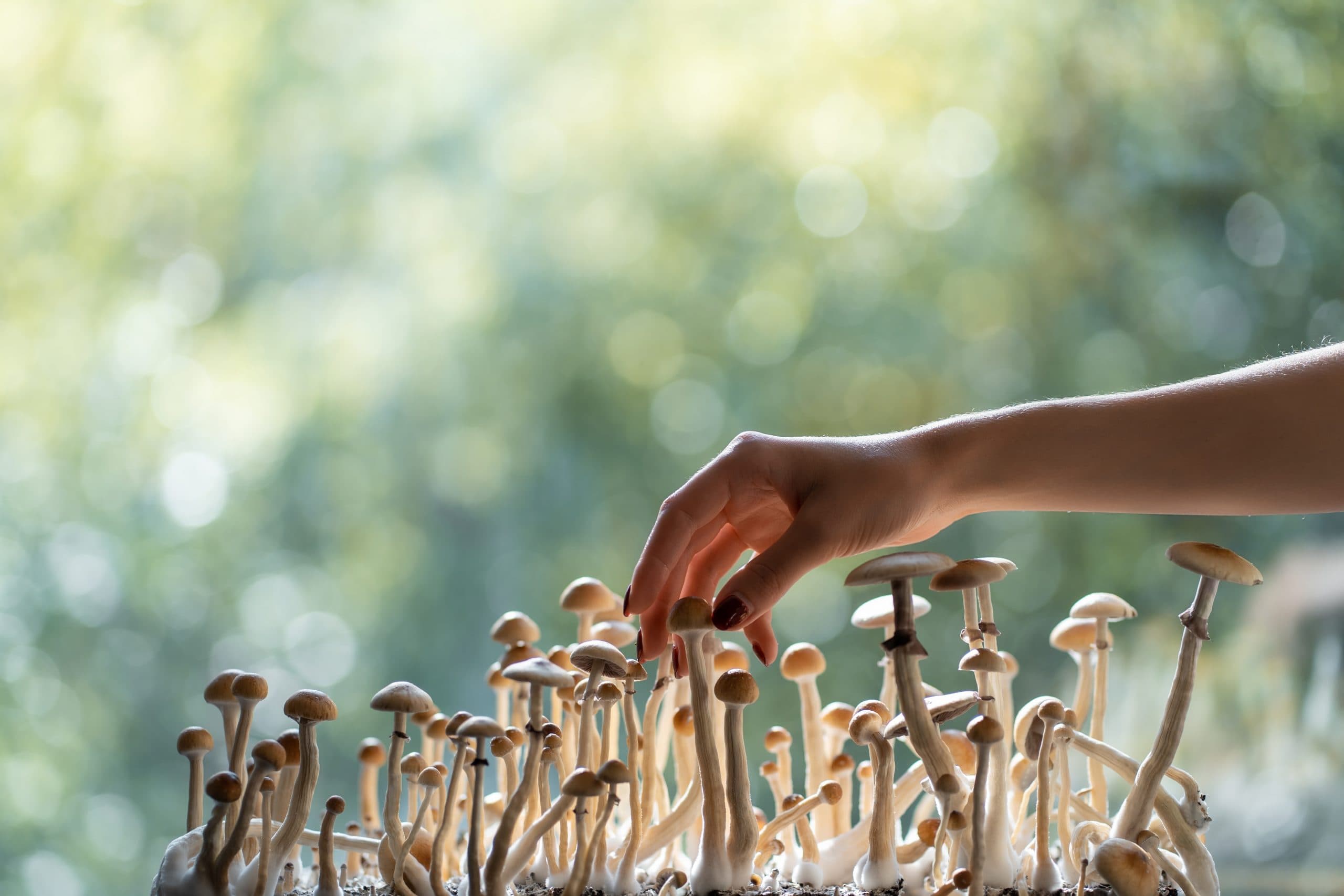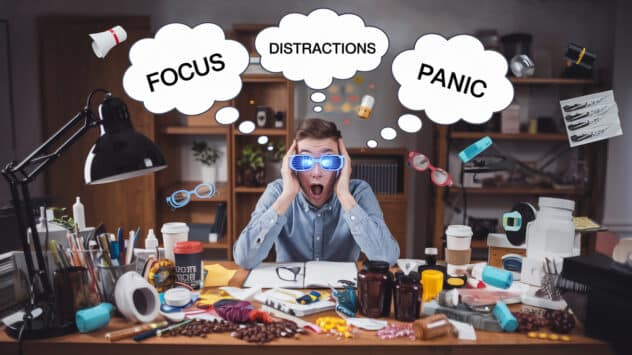
Microdosing Mushrooms for ADHD: A Realistic Approach to Managing Focus and Emotional Regulation
ADHD. If you have it, you already know the daily battle of trying to stay focused, keeping emotions in check, and resisting the sudden, overwhelming urge to start a new project before finishing the last one. For Cordin, a 32-year-old tech professional from New York, life often felt like trying to read a book while sitting in the front row of a heavy metal concert. He had only been diagnosed with ADHD two years ago, along with a possible autism diagnosis thrown in for good measure. Frustration, confusion, and a severe lack of answers made things harder until he started looking beyond the usual prescription pad. That is when he stumbled onto something unconventional: microdosing mushrooms for ADHD.
Cordin had been through the standard ADHD medication trial and error circus. Some helped with focus, sure, but also left him feeling jittery, wired, and vaguely like he had consumed one too many espressos. Others just made him feel flat. It was not until he heard about microdosing psilocybin mushrooms that he considered there might be another way. It sounded unorthodox, maybe even a bit out there, but at that point, he figured, why not?
A Step into the Unknown: Cordin’s Microdosing Experiment
At first, Cordin was skeptical. Microdosing, taking tiny, sub-perceptual amounts of psilocybin mushrooms, was still considered a bit out there. He read about it in online forums, overheard whispers about it from a few colleagues, and stumbled across some promising research studies. Curious but cautious, he started digging deeper.
Unlock peak brain performance with science-backed biohacks. Join free now & get your guide for just £4.99 (45% off)!

A bit of research (Googling) discovered something rather compelling. There were studies suggesting that psilocybin (the active compound in magic mushrooms) did in fact improve focus, emotional regulation, and even boost creativity for many subjects. It was interesting enough for him to take the leap. “What do I have to lose?” he thought. Apart from his ability to legally explain his self-experimentation, but details…
Cordin was not expecting a miracle. He was not looking for a shortcut to becoming a productivity machine. What he wanted was a solution that did not leave him feeling like a caffeine-fueled squirrel or a robot running on low battery. He figured microdosing might just offer a middle ground.
What Exactly is Microdosing Mushrooms?
Microdosing is about taking very small doses of a psychedelic substance, psilocybin in this case, on a regular schedule. These doses are around one tenth to one twentieth of a full recreational dose. The goal? No trippy visuals, no talking to your houseplants, just subtle cognitive and emotional benefits.
The idea is that by taking these small doses, you can experience improved mood, focus, and emotional stability without the drastic effects or the “why is my carpet breathing?” moments of traditional psychedelics. It is a gentle nudge to the brain rather than a full-force shove.
Cordin’s Experience: Finding Clarity and Balance
Over the next few weeks, Cordin cautiously began his microdosing mushrooms for ADHD experiment. He started small, monitoring how he felt, and adjusting as needed. He did not expect dramatic results, but subtle shifts began appearing.
Meetings that once felt like an uphill battle became more manageable. The brain fog started clearing. He found himself staying with tasks longer without the usual compulsion to check his phone, rearrange his desk, or suddenly decide to deep-clean the kitchen.
And then there was the emotional shift. Emotional regulation had always been a challenge. He would snap in frustration or get overwhelmed by the smallest inconveniences. But after a few weeks of microdosing, something changed. When irritation bubbled up, it did not take over. He could take a breath, step back, and process situations more rationally. “I’m not as quick to jump into an emotional reaction,” he stated.
The Science Behind Microdosing Mushrooms
While Cordin’s story is encouraging, it’s important to recognise that microdosing psilocybin is still an emerging field of study. Research is still in its early stages, but there are some compelling findings. One study published in Neurochemistry International suggested that psychedelics like psilocybin could help promote neuroplasticity, improving brain connectivity and boosting the areas responsible for focus, memory, and emotional regulation.
This aligns with the way ADHD manifests in the brain. People with ADHD often have differences in brain regions responsible for impulse control and attention. Psilocybin’s effects on neuroplasticity may help the brain form new neural pathways that support better cognitive control and emotional responses.
While the science is promising, it’s still early. More research is needed to understand the full potential and limitations of microdosing for ADHD. But for Cordin, the anecdotal evidence, backed by ongoing research, was enough to make a real difference.
The Risks and Reality of Microdosing Mushrooms
Of course, microdosing is not all sunshine and newfound focus. Psilocybin is still classified as a controlled substance in many places, including the UK and US. Even in areas where it is decriminalized, it should always be approached responsibly and with proper guidance.
It is also not a guaranteed fix for everyone. Some people do not see benefits, and others may even find that it makes things worse. Just because it worked for Cordin does not mean it is a universal ADHD cure-all. Bodies and brains react differently, and self-experimentation should never be reckless.
Cordin approached it carefully. He spoke to a health consultant before starting, tracked his responses, and made sure he was not diving in blindly. This kind of mindful approach is key for anyone considering microdosing as part of their ADHD management.
And for those who would rather stay on the right side of the law, Lion’s Mane mushrooms offer a legal, well-researched way to support brain function and neuroplasticity without any potential awkward conversations with law enforcement.
Conclusion: A New Approach, With Caution
Microdosing psilocybin for ADHD isn’t a magic bullet. But, for people like Cordin, it presents a potential alternative to traditional treatments that can sometimes be a poor fit. While the research is still catching up, early studies and anecdotal evidence suggest that psilocybin could offer subtle but meaningful benefits, such as improved focus, emotional regulation, and creative thinking.
As always, it’s crucial to approach this with caution. Speak to a healthcare provider, stay informed, and never experiment with psychedelics outside of legal and safe contexts. Microdosing may offer a fresh perspective for ADHD management, but like any new treatment, it should be approached responsibly.
Join Our Community
Looking to connect with others on the same journey? Our Herbal Biohacker Community is the perfect place to share tips, swap stories, and discover new biohacks. From personalised advice to expert insights, we’ve got you covered. Let’s navigate this exciting world together—because biohacking is better with friends.






